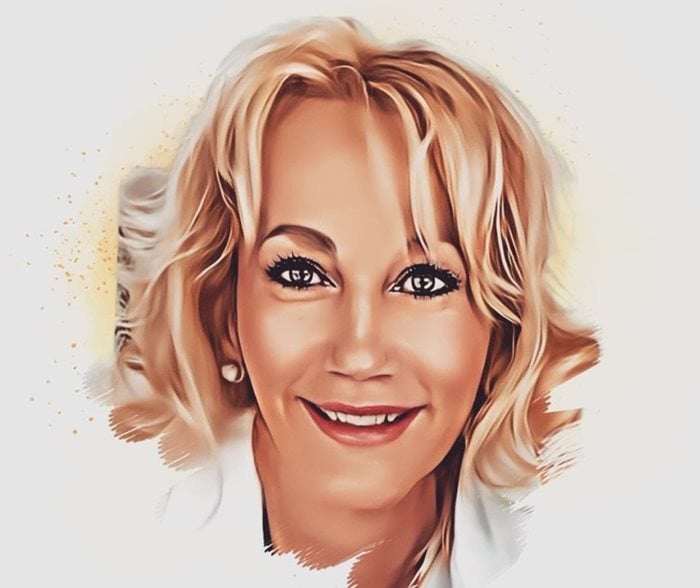SA medical students flee Ukraine - not too long ago it was Cuba, remember?
A large proportion of the South African students who have fled Ukraine was studying medicine there.

Source: Supplied. Collette Marais works in the office of the directors at the Free Market Foundation.
They had all applied to study in South Africa after matriculating but were unsuccessful, due to the limited number of applicants that government training facilities can accept. The state's stubborn intransigence continues to deny the private medical sector the option of setting up privately owned training centres.
Had the previous Minister of Health, Dr Aaron Motsoaledi, not been so dead-set (no pun intended) on preventing private enterprise from branching out into training medical professionals, the South African students who had to flee Cuba in 2013 and more recently from Ukraine would have been here, in their own country, near their families and able to complete their studies.
They now face the challenge of having to go through a conversion process which requires a variety of exams and registrations, none of which would have been necessary had they had the opportunity of enrolling at private facilities in South Africa.
Cuban programme "a failure"
Is anyone surprised that the programme used to train South Africans as doctors in Cuba has been a catastrophic failure? Motsoaledi was quoted as saying some years ago: “The Cuban government is not … coping with these numbers, the provinces in their budgeting systems did not factor it very well, and it is too much for the South African universities to absorb.”
For many years, the Free Market Foundation has suggested that to tackle the chronic shortage of skilled doctors, rather than sending students off to far-flung states, often despotic ones like Cuba, that have completely different disease profiles than South Africa, the government should instead allow the private sector to train doctors, increase the number of positions available at the government medical schools, and allow more skilled healthcare professionals from abroad to practise medicine here.
Everyone is well-aware of our growing population, let alone the dramatically increased burden of disease driven by the onslaught of HIV/Aids, tuberculosis, and now Covid-19. Yet, despite greater demand, the government has only slightly raised the number of trainee doctor places at state medical schools from what it was in the 1970s.
According to Prof Martin Veller, Dean of Wits Faculty of Health Science “SA’s medical schools graduate about 1,800 students a year”. Compare this to the 1970s, when South Africa graduated about 1,200 students a year.
Meanwhile, the population has more than doubled from about 24.3 million in the mid-1970s to more than 60 million.
When you add to this our ageing population, which will require more treatments for chronic ailments in the future, you cannot fail to see that the now desperate shortage of doctors is getting worse by the day. Our broken, non-performing public healthcare system exacerbates this problem because it is driving our doctors away, failing to pay salaries to student doctors, and failing to maintain public hospitals to an acceptable standard.
Common reasons cited for the exodus of skilled personnel from the public health sector are poor salaries, high workloads, appalling work environments and few opportunities for any meaningful advancement. The proposed National Health Insurance scheme has been an especially great disincentive for doctors to practise here.
Yet the government still refuses to allow the private sector to train doctors and prohibits prospective doctors from completing their community service and medical internships in the private sector, which would alleviate some of the burden on the budgets of provincial government departments.
SA's private hospitals could attract international lecturers
South African private hospitals are well-established centres of excellence and world-renowned for their high level of care. Privately-run education facilities, if conducted in co-operation with private hospitals, for example the Donald Gordon Medical Institute, have the potential to attract internationally recognised lecturers, which will increase the available pool of knowledge, as well as lure international students to our shores, who, once qualified, may decide to continue working here.
Unlike the government, the private sector has an immediate economic incentive to ensure that doctors who qualify at their institutions measure up to South Africa’s high standards. Fears that they will not, are unfounded.
In 2014, Motsoaledi dismissed the idea of the private-sector training doctors when he stated: “We can do it, but the day you implement it, forget about poor children going to study medicine. Medicine would be a degree for the super-rich.
“If we do it, we’ll kiss goodbye to the training of children from rural areas. They will never become doctors. That is the danger.”
However, as the Free Market Foundation pointed out at the time, the minister’s thoughts were confounded. If the private sector could train prospective students, it would free up space in government-run medical schools and allow more doctors from disadvantaged backgrounds to be trained. The idea that the private sector caters only to the uber-rich is also an old Cold War-era myth that many South African politicians have trouble letting go, despite the innumerable examples of affordable private services and charitable initiatives.
Indeed, what would stop the private sector from training poor children? Surely, they would be seeking out the best and brightest minds, irrespective of financial background, and offering assistance in the normal way in the form of bursaries?
Cuban training more expensive than domestic training
In 2013, Motsoaledi believed that it cost twice as much to train medical students in South Africa than in Cuba. It has, however, since been revealed that the Cuban programme is more expensive than training domestically. Rather than scrapping the programme, it has been scaled back temporarily.
The state is ideologically opposed to the private sector, even if the policies being pushed come at great expense to the already overburdened taxpayer and threaten the health and wellbeing of South Africa’s citizens.
Privately-run medical schools will not solve the chronic medical staff shortage overnight but will assist the government’s long-term efforts to increase the number of medical professionals with the appropriate skills set to meet SA’s massive healthcare challenges.
About the author
Collette Marais works in the office of the directors at the Free Market Foundation.
